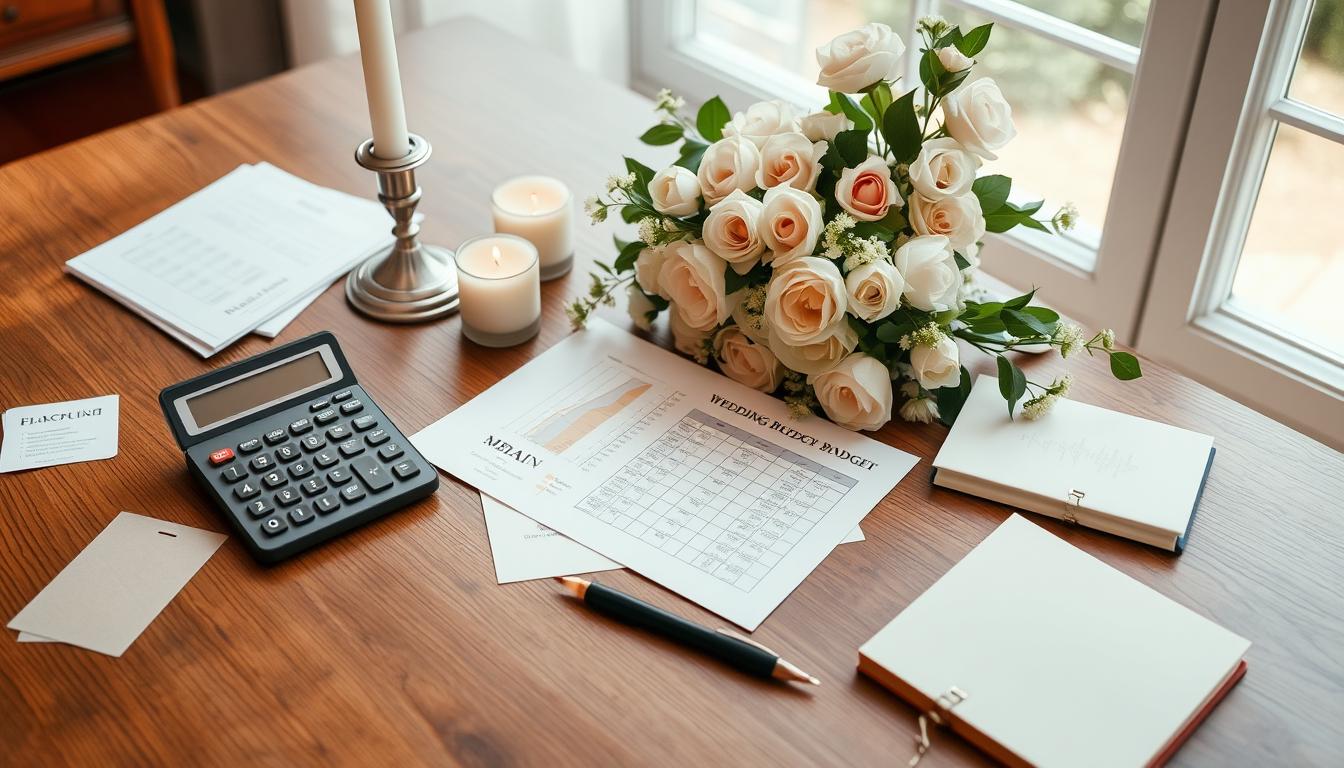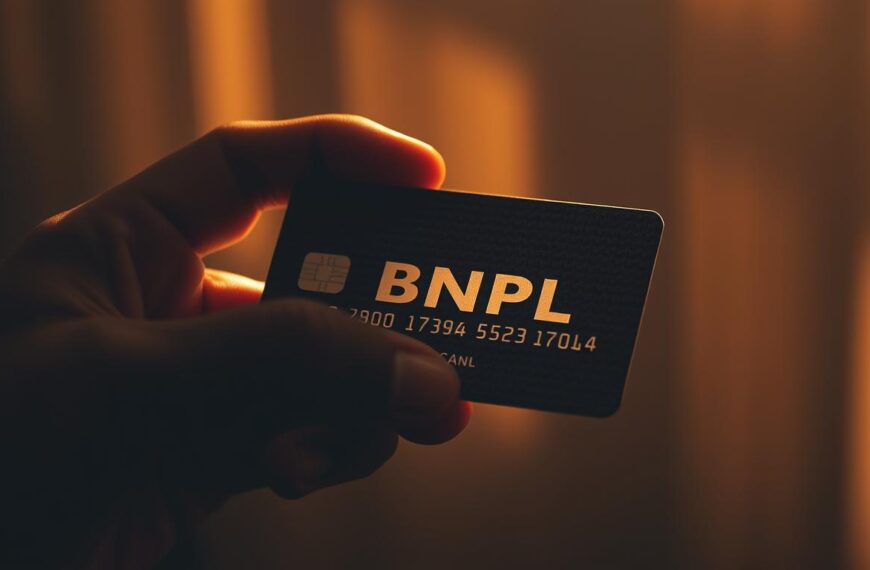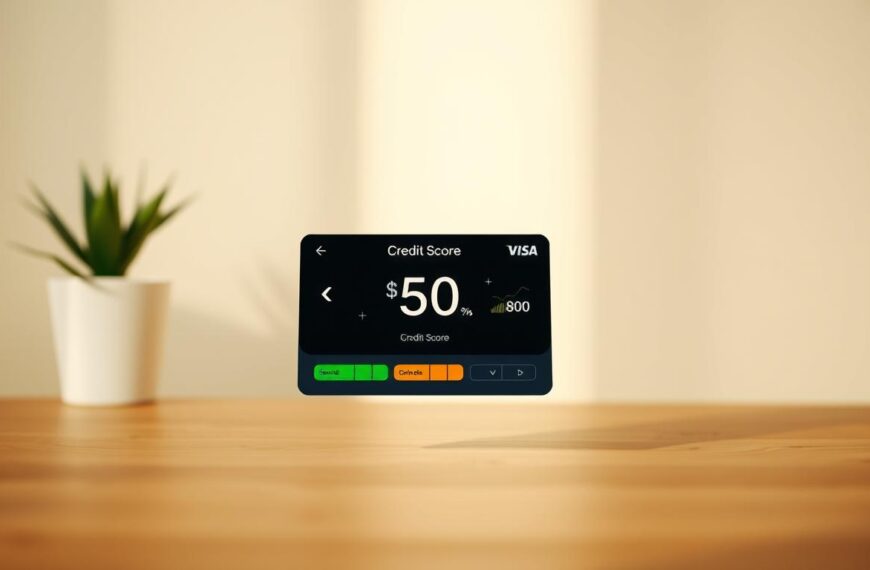Wedding planning can be thrilling, but financial hurdles often loom large. The average UK wedding now costs £20,700, a 12.5% increase from last year1. Careful budget planning is vital for couples aiming to create their dream day affordably.
Strategic thinking is crucial when tackling wedding expenses. UK wedding costs typically range from £20,000 to £30,000, depending on factors like location and guest count2. Couples must be clever with their affordable wedding ideas from the start.
Every pound matters in wedding budget planning. Smart choices can significantly reduce expenses. Opting for a weekday wedding instead of a weekend can save up to 30%2.
A memorable wedding isn’t about lavish spending. It’s about making wise financial decisions. By focusing on what’s truly important, couples can craft a beautiful celebration without compromising their future.
Understanding Wedding Costs in the UK Market
UK wedding costs can be complex. Couples must carefully consider their special day’s finances. Strategic budgeting is crucial for a successful matrimonial journey.
Average Wedding Expenses Breakdown
The average UK wedding costs about £21,000. Couples typically allocate their budget across several key areas.
Weddings are a significant financial investment. Most couples spend their resources on:
- Venue and catering: 45% of total budget3
- Wedding attire: Around 20% of total budget3
- Photography and videography: Approximately £2,3003
Key Cost Factors to Consider
Budget-conscious couples should pay close attention to specific expense categories. The average wedding involves critical financial considerations:
| Wedding Element | Average Cost |
|---|---|
| Venue | £5,0003 |
| Catering | £4,5003 |
| Wedding Attire | £4,0003 |
| Decor and Flowers | £1,2603 |
Regional Price Variations
Wedding costs vary across different UK regions. Some areas have higher expenses due to local market rates and demand4.
Couples can save up to £6,500 by choosing off-peak dates and weekdays for their venue hire4.
“Smart planning can make a substantial difference in your wedding budget,” says financial wedding expert Sarah Thompson.
Understanding wedding expenses helps couples make informed decisions. This knowledge allows them to create a memorable day without financial strain.
Smart Timeline Planning for Wedding Budgeting
Creating a strategic wedding budget timeline is vital for financial planning. Couples should start their financial preparation early to manage expenses effectively. Most weddings take about 13 months to plan, allowing ample time for careful budgeting.
The engagement period is crucial for financial preparation. A comprehensive wedding budget timeline typically involves several key stages:
- Initial financial assessment (12-14 months before wedding)
- Vendor research and booking (9-11 months ahead)
- Detailed expense tracking
- Regular budget review and adjustment
About 38% of couples find finances challenging during wedding planning5. Early planning can help overcome these hurdles. Without proper planning, 70% of couples exceed their initial wedding budget6.
“Planning ahead can reduce financial stress and help you create the wedding of your dreams without breaking the bank.”
Here are some strategic budgeting tips:
- Start saving immediately after engagement
- Create a detailed spreadsheet
- Research vendor costs systematically
- Build a contingency fund
| Timeline Stage | Financial Focus |
|---|---|
| 12-14 months | Initial budget setting |
| 9-11 months | Vendor negotiations |
| 6-8 months | Refinement and tracking |
Proactive financial planning transforms wedding budgeting from a potential source of stress into an exciting part of your journey together.
Essential Budgeting for a Wedding Tips
Planning a wedding requires smart money management. A detailed budget spreadsheet helps couples track expenses effectively. This tool provides clarity and confidence7.
Prioritising wedding costs is vital for financial control. Understanding typical budget allocation helps couples make wise decisions.
Creating a Realistic Budget Spreadsheet
A good wedding budget spreadsheet should list all categories and expected costs. Here are key areas to consider:
- Venue and catering: approximately 35% of total budget7
- Photography and videography: 10% of budget7
- Wedding planning services: 12%7
- Attire and beauty: 5%7
Setting Financial Priorities
Successful wedding budgeting is about making strategic choices that reflect your personal preferences.
Couples should discuss which wedding elements matter most to them. Some might prefer gourmet catering, while others value exceptional photography.
Budget planning techniques can help achieve these priorities. Explore effective methods here.
Emergency Fund Allocation
Experts suggest keeping 10% to 15% of your budget for unexpected costs7. This buffer provides peace of mind and flexibility.
| Budget Category | Percentage Allocation |
|---|---|
| Venue and Catering | 35% |
| Photography | 10% |
| Emergency Fund | 10-15% |
Careful budgeting ensures your dream wedding stays affordable. It allows you to celebrate without financial worry.
Creative Ways to Reduce Wedding Expenses
Planning a wedding doesn’t have to drain your savings. Clever couples are finding innovative DIY ideas to slash costs. These budget-friendly tips focus on smart choices that deliver maximum value8.

- Choose an alternative wedding day. Only 50% of couples now marry on Saturdays, with many opting for Friday or Sunday weddings that can save up to £1,5008.
- Consolidate your venue to eliminate transportation costs8.
- Explore unconventional catering options like food trucks or buffet-style meals9.
“Creativity is the key to a beautiful wedding that doesn’t break the bank.”
Dress shopping can offer significant savings. Sample sales can reduce wedding gown prices by 20% to 90%10. Some brides even find designer dresses at charity shops for under £5009.
| Cost-Saving Area | Potential Savings |
|---|---|
| Wedding Day Selection | Up to £1,500 |
| Catering Approach | 30-50% reduction |
| Dress Shopping | 20-90% off retail |
Alcohol can be a major expense. Limiting drink options to beer, wine, and a signature cocktail can significantly reduce bar costs8.
Planning late-night snacks for only 70% of guests prevents unnecessary food spending10. Your wedding can be stunning without causing financial stress9.
Maximising Your Wedding Budget Through Timing and Venue Selection
Planning a wedding can be costly. However, smart choices in timing and venue can slash expenses. Smart wedding planning involves finding affordable venues and off-season savings.
Off-Peak Wedding Benefits
Choosing less popular wedding dates can lead to big savings. Venue prices can drop by 30-50% during quieter months from November to March11.
Mid-week weddings offer great value. Couples can save up to 40% compared to weekend rates11.
- Winter weddings attract only 7% of couples, making venues more flexible with pricing11
- Tuesday and Wednesday weddings can save £5,000-£8,000 compared to Saturday events11
- All-inclusive winter wedding packages might reduce overall costs by up to 65%11
Alternative Venue Options
Unusual venues can cut costs dramatically. Alternative spaces like community centres, parks, or local halls can be 30-50% cheaper than traditional venues12.
Some couples find unique locations that save money and create memorable backdrops. These spots can add a special touch to your day.
Package Deal Considerations
Negotiating with venues and examining package deals can lead to big savings. Some venues offer great discounts for mid-week celebrations.
For example, certain venues drop Saturday rates from £12,000 to £4,995 for smaller guest lists11.
Tip: Always get multiple quotes and don’t be afraid to negotiate for better rates!
Couples with budgets under £10,000 can create beautiful weddings without breaking the bank11. The secret is to be flexible, creative, and plan strategically.
Conclusion
Planning a wedding needn’t empty your bank account. Smart budgeting can create a memorable day without financial worry. The secret lies in clever planning and innovative thinking13.
UK weddings typically cost £15,000 to £30,000. Developing a realistic financial plan is vital13. Focus on what’s truly important to you as a couple.
Exploring cost-effective savings strategies can make a big difference. Trimming guest lists and choosing off-peak dates can slash expenses14.
Non-traditional wedding dates can save up to 30% on venue costs14. Consider DIY options to further reduce spending.
A beautiful wedding isn’t about lavish spending. It’s about celebrating your love story. Approach your budget creatively for a financially sensible, meaningful day.
Your wedding should mirror your relationship. Make it unique, thoughtful, and tailored to your dreams.
FAQ
How much does an average wedding in the UK cost?
UK weddings typically cost between £20,000 and £30,000. Prices vary based on location, guest count, and venue choice. London and Southeast weddings tend to be pricier.
When should we start saving for our wedding?
Begin saving as soon as you’re engaged. Most couples start financial planning 12-18 months before the big day. This allows time to spread costs and secure early booking discounts.
How can we cut down on wedding expenses?
Choose off-peak dates and reduce your guest list. Consider alternative venues like community centres or local pubs. Try DIY decorations and explore creative catering options.
Food trucks or buffet-style meals can be cost-effective choices.
Is a weekday wedding really cheaper?
Yes, weekday weddings can save you 20-50% on venue and vendor costs. Saturday remains the priciest day for weddings.
How much should we budget for an emergency fund?
Set aside 5-10% of your total wedding budget for unexpected expenses. This emergency fund can cover last-minute adjustments or surprises.
Can family help reduce wedding costs?
Absolutely! Ask family members to contribute skills instead of gifts. They could help with photography, baking, floral arrangements, or DIY decorations.
What are the most expensive wedding elements?
Venue hire, catering, wedding attire, and reception entertainment are typically the priciest. These can take up to 70% of your total budget.
How far in advance should we book wedding vendors?
Book key vendors 12-18 months ahead. Popular suppliers fill up quickly, especially during peak wedding season (May to September).
Are destination weddings more expensive?
Destination weddings can be both cheaper and pricier. Smaller guest lists may lower costs. However, travel and accommodation expenses can increase the total spend.
How can we create a wedding budget spreadsheet?
Use Excel or Google Sheets to make your budget. Create columns for estimated and actual costs. Categorise expenses and track spending in real-time.

















